Diagnostic of malposition Testis (undescended Testicle, Cryptorchidism) in Germany
Treatment prices are regulated by national law of the corresponding countries, but can also include additional hospital coefficients. In order to receive the individual cost calculation, please send us the request and medical records.

Department of Adult and Pediatric Urology, Andrology
The Department of Adult and Pediatric Urology, Andrology offers the full range of services in the areas of its specialization. Men and boys with diseases of the reproductive system can be diagnosed and treated in the medical facility. Doctors also treat infertility and erectile dysfunction. Medical care is provided to men and women with diseases of the urinary system, namely kidneys, ureters, bladder, and urethra. The department is certified as the Prostate Cancer Center by the German Cancer Society (DKG), which indicates the excellent quality of the services provided in this area. The department's urologists have a perfect command of the innovative treatment methods, including holmium laser enucleation of the prostate (HoLEP), photodynamic therapy, and da Vinci robot-assisted surgery. The department employs comprehensively trained and experienced doctors who apply advanced medical achievements in their practice. Each patient is provided with an individual approach, considering their specific needs and wishes.
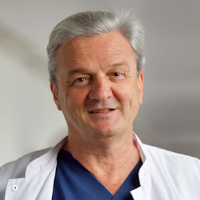





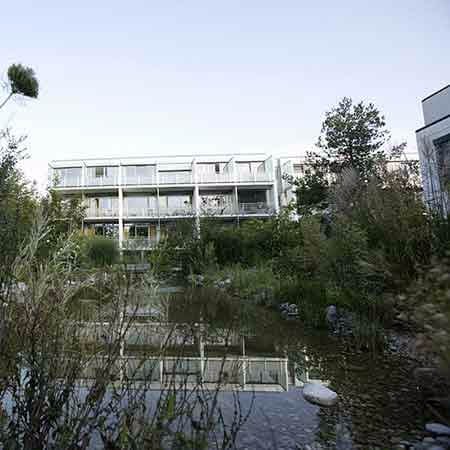
Department of Adult and Pediatric Urology, Andrology
The Department of Urology annually examines more than 750 men with suspected malposition testis (cryptorchidism). The specialists of the department make a detailed evaluation of the location of the testicle and its function, after which they plan an optimal treatment regimen, including hormonal therapy. The department is headed by Prof. Dr. med. Martin Kriegmair, who is a member of the German Society of Urology, as well as of the European and American Association of Urologists.
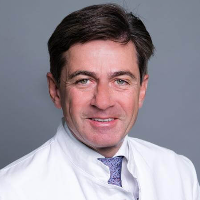
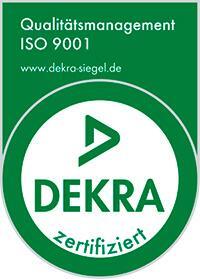

Department of Adult and Pediatric Urology
The Department of Adult and Pediatric Urology provides high-precision diagnostic examinations and effective treatment for diseases of the genitourinary system and reproductive system in men and boys. Of particular interest is drug therapy and surgical treatment of prostate, bladder, kidney, testicular, and penile cancers. The department is part of the Comprehensive Cancer Center Ulm (CCCU). For the patient, this means that their clinical case is studied by a multidisciplinary tumor board, which determines the optimal treatment tactics. The department is also certified by the German Cancer Society (DKG), so all therapeutic procedures meet strict national and international standards. The department's team of urologists also has unique clinical experience in the minimally invasive treatment of kidney stone disease, benign prostatic hyperplasia, neuro-urological dysfunction, and all urologic diseases in children. During the surgical treatment, the specialists at the medical facility successfully use minimally traumatic surgical techniques. They perform endoscopic, laser, minimally invasive, and robot-assisted surgery using the innovative Da Vinci system. The department treats about 3,000 inpatients and 9,000 outpatients with clinical cases of varying complexity annually. The number of surgical procedures performed and treatment outcomes are regularly published by the authorized commission of the Initiative Quality in Medicine (IQM).
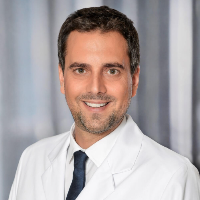





Cryptorchidism is the most common developmental anomaly of the reproductive system in a boy. This is the malposition testis, in which the organ does not descend into the scrotum. The prevalence of the disease is 1-2% among the male population. Its complications are infertility, impotence, and malignant transformation of the undescended testicle. In the absence of one or two testicles in the scrotum, you can undergo your diagnostics and treatment in Germany. The level of medicine in this country allows one to expect the best results. On the Booking Health website, you can find the cost of treatment in Germany and choose the best medical care program.
Content
- When is it best to undergo diagnostics?
- When is cryptorchidism diagnosed?
- Diagnostics principles
- Instrumental diagnostics
- Laboratory diagnostics
- Where to undergo the diagnostics of the disease?
When is it best to undergo diagnostics?
The disease can be detected immediately after birth but sometimes the condition can be diagnosed later.
Over time, the testicle may descend into the scrotum on its own, so treatment is not always required. In newborns, an undescended testicle is detected with a probability of 20%, while the prevalence of the pathology among children over the age of 1 year is only 2%, and in adolescence it makes up 1%. The prevalence of the developmental anomaly in adult men is 0.2%.
But if there is no testicle in the scrotum, you should not delay visiting a specialist. The longer a patient goes untreated, the greater the loss of germ cells and the greater the risk of future fertility and hormone problems. In 80% of cases, the testicle descends into the scrotum in the first 3 months of life. If this has not happened before the age of 6 months, you should be diagnosed and treated. In older children, diagnostics and treatment are carried out immediately after the detection of a missing testicle in the scrotum.
When is cryptorchidism diagnosed?
Cryptorchidism is diagnosed when one or both testicles have not descended into the scrotum. The disease can develop in the following two ways:
- retention;
- ectopia.
Retention is a delay in the testicular descent. The condition can be inguinal and abdominal, depending on the stage at which the process of descending into the scrotum stopped.
Ectopia is the migration of the testis. Depending on where it is located, ectopia can be femoral, pubic, pubopenile, and perineal.
During the diagnostics, cryptorchidism is differentiated from a retractile testicle. It has descended into the scrotum, but its position is higher than usual due to elevation by the cremaster muscle. The difference becomes noticeable already on palpation. Unlike cryptorchidism, in the case of a retractile testicle, it can take the correct position if a doctor lowers it into the scrotum with his fingers during an examination.
Diagnostics principles
For men diagnostics of cryptorchidism includes the following:
- symptom clarification;
- clinical examination;
- instrumental diagnostics.
Genetic tests are rarely required.
The presence of cryptorchidism can be recorded during a medical examination and palpation of the scrotum. Newborns and children in their first year of life are examined lying on their backs, and the rest are examined standing with their legs crossed. A doctor examines the groin, thigh, perineum, and pubis. The specialist pays attention to both halves of the scrotum. If the testicle is found in the inguinal canal, doctors try to advance it into the scrotum. If successful, the doctor may attempt to fix it. To do this, they press the hand on the spermatic cord to suppress the cremasteric reflex (the muscle that lifts the testicle). So the urologist can immediately distinguish cryptorchidism from a retractile testicle.
Instrumental diagnostics
In 70% of cases, palpation is sufficient to make a diagnosis. In the remaining 30% of cases, specialists resort to instrumental diagnostic methods.
The simplest, fastest, and most inexpensive diagnostic method is an ultrasound scan. Its diagnostic value, however, is not very high, so ultrasound scanning is rarely used in developed countries. Ultrasound examinations help to detect non-palpable testicles only in 45% of cases. In most men who fail to detect a testicle with ultrasound, it will eventually be detected in the abdominal cavity using other instrumental diagnostic methods.
Computed tomography is not used for cryptorchidism diagnostics. This is due to the fact that the method has a bad effect on the condition of the reproductive system.
An MRI scan is considered the main diagnostic method at hospitals in Germany to detect cryptorchidism. The technique allows the detection of an undescended testicle and clarifies its localization in most patients. The MRI scan cannot be used in all men with cryptorchidism. It is used only in cases when the unreduced testicle can not be palpated. In some cases, MRI scans can be performed after ultrasound if it was not possible to find the testicle using ultrasound diagnostics.
Laboratory diagnostics
Should gonadal dysgenesis be suspected, karyotyping will be performed. This technique involves determining the set of chromosomes in the patient's cells. Doctors can also detect mutations that lead to the underdevelopment of the reproductive system and low testosterone levels.
Below are some other tests that can be used for the diagnostic of cryptorchidism in Germany:
- gonadotropin level testing in the blood (follicle-stimulating and luteinizing hormone);
- anti-Mullerian hormone test;
- testosterone level testing.
In the case of low testosterone levels, a test with human chorionic gonadotropin is performed. If the testicles are functioning properly, testosterone levels should rise.
Where to undergo the diagnostics of the disease?
You can seek medical attention from one of the hospitals in Germany to undergo your diagnostics and treatment. Diagnostics in this country are very accurate, and treatment in Germany is safe and effective. In a good hospital in Germany, the problem of cryptorchidism can be solved once and for all. The Booking Health staff will help you to select hospitals for treatment of this disease, reduce the cost of treatment, and arrange your trip.
Diagnostics at hospitals in Germany offers the following benefits:
- comprehensive diagnostics, during which the fact of undescended testicle into the scrotum is confirmed, cryptorchidism is differentiated from other diseases and conditions, and the localization of the testicle is also determined;
- high-quality medical imaging equipment that can detect undescended testicles in almost all patients;
- doctors at hospitals in Germany do not use the methods with radiation exposure to visualize the reproductive system, since they have a bad effect on the reproductive function;
- genetic diagnostics can be carried out to detect chromosomal abnormalities whenever required;
- after your diagnostics at hospitals in Germany, you can undergo your treatment that will help to return the testicle to the correct position and maintain your reproductive function.
You are welcome to use the Booking Health website to find the cost of treatment in Germany and select a medical care program. The specialists from the Booking Health company will help you to find the most suitable hospitals in Germany. When choosing a medical care program through the Booking Health service, the cost of treatment in Germany will be lower due to the lack of additional fees for foreign patients.
Authors:
The article was edited by medical experts, board-certified doctors Dr. Nadezhda Ivanisova and Dr. Vadim Zhiliuk. For the treatment of the conditions referred to in the article, you must consult a doctor; the information in the article is not intended for self-medication!
Sources:

